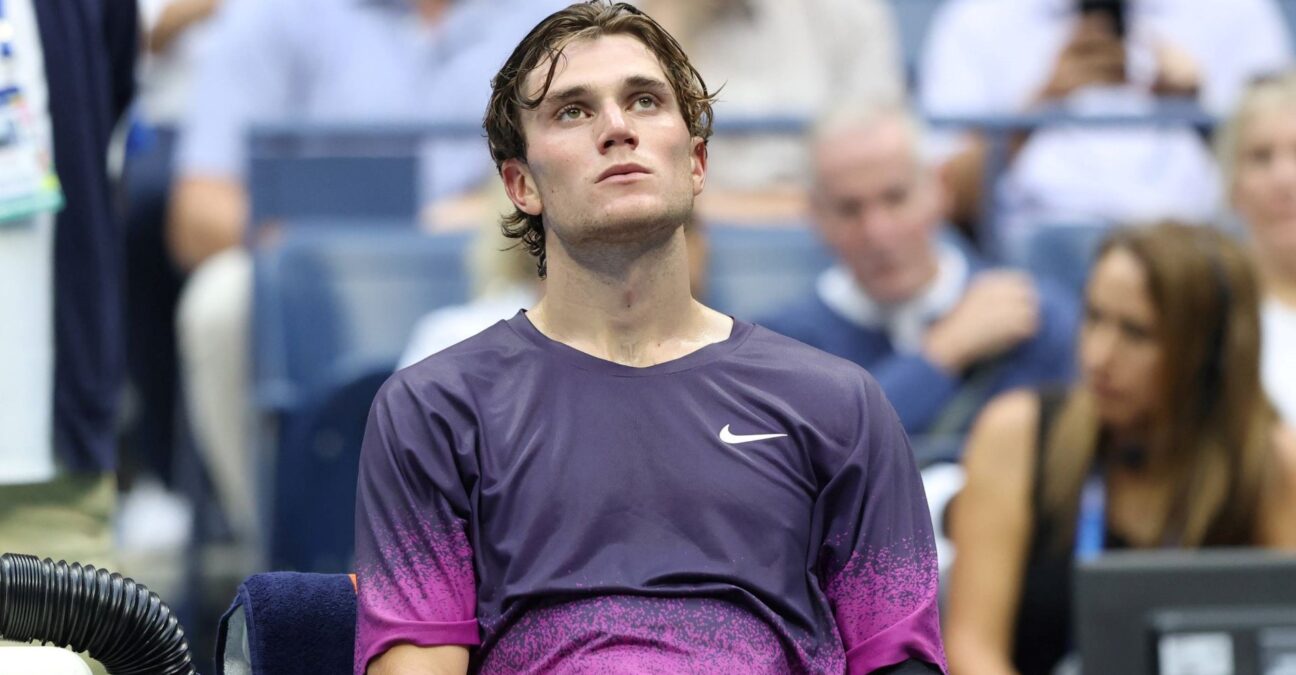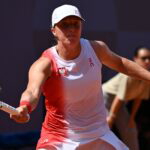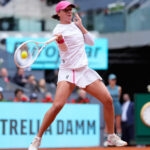“It’s a mental calendar” – Draper raises concerns about overpacked schedule
The British No 1 is competing at the Davis Cup in Manchester this week, just seven days after a gruelling US Open semi-final against Jannik Sinner in New York
 An exhausted Jack Draper during the 2024 US Open semi-final © Imago / Panoramic
An exhausted Jack Draper during the 2024 US Open semi-final © Imago / Panoramic
Tennis players calling for a less hectic schedule is becoming an uncomfortably recurring theme.
In a sprawling calendar that spans five continents and lasts eleven months of the year, it is increasingly evident that the relentless grind of back-to-back tennis tournaments – often many hundreds of miles apart – is having an impact of the physical and mental health of the players.
Jack Draper is the latest high-profile name to add his voice to the growing sense of concern about the season’s gruelling structure.
It was only a week before he stepped out to face Francisco Cerundolo in the Davis Cup in Manchester that the British No 1 was being physically sick on court in New York in his brutally hot and humid semi-final against Jannik Sinner at the US Open.
Compared to a tennis player’s regular routine, this is a relatively long period of recovery. Usually, if a player reaches the last eight or further of a tournament, they will be playing in the next event mere days after exiting their last.
Yet, after six straight best-of-five matches, and a 3500-mile flight back home, even a luxurious seven days was unsurprisingly not an adequate amount of time for Draper to fully shake his US Open exploits out of his legs.
“There’s no doubt it’s a quick turnaround. I think a lot of people in my position would have not come this week,” Draper said of playing in the Davis Cup so soon after New York.
It is worth pointing out that Draper had the option of sitting this one out. Indeed, members of his team had advised it might be wiser to skip the Davis Cup in favour of giving his body a longer rest before the tour starts up again in earnest for the Asian swing.
But the British No 1 is a proud and patriotic representative of his home nation. For someone of Draper’s calibre to be forced to choose between playing for his country in the Davis Cup or ensuring suitable recovery following a first run to the semi-final of a Grand Slam is indicative of a tennis calendar that is in dire need of a rethink.
draper raises issues of longevitiy in an increasingly packed tennis schedule
If the mental and physical health of players is not enough of an incentive for the various governing bodies of tennis to get their act together, then perhaps a more self-serving point may garner their attention.
As the ATP and WTA exert greater efforts into marketing the next era of tennis’ superstars, following the departures of Roger Federer, Andy Murray, Serena Williams and others, then ensuring these next-generation talents can play out long and healthy careers should become a leading priority.
Yet, “it’s a mental calendar,” is how Draper puts it.
“It’s my opinion that it’s going to be very hard for players of my age to achieve longevity any more… Since Miami [in March] I just haven’t had any time.
“We went straight into the clay, then straight on to the grass, straight to the Olympics, straight out to Montreal, Cincinnati, training week, US Open, here, then it’s Asia, then it’s indoor season.
“I look at the sort of schedule, and I know players have done it for years, but the way the ATP have changed to two weeks with the Masters and these types of things, it’s giving us no time any more.
“There’s literally no break. It’s really mentally and physically challenging.”
Draper’s comments come only a couple of weeks after the WTA’s world No 1 Iga Swiatek expressed similar concerns in both Cincinnati and at the US Open.
“I think players are aware that this is crazy what’s going on, and the schedule is really tough,” she said following her first-round match in New York.
“I spoke about it in Cincinnati, for example, and there are people saying that, oh, I don’t have to play so many tournaments.
“But truth, like the fact is that we have so many mandatory tournaments. We literally need to show up and we don’t have time to work on stuff… because from one tournament we’re going straight to another,” Swiatek continued.
The world No 1 has opted to miss the Billie Jean King Cups Finals for the past two years because of an absurdly short turnaround after the WTA Finals, both of which are huge events in the women’s calendar, but inexplicably often take part within days of each other and on separate continents. This is primarily due to the inability of the ITF and WTA to negotiate any sort of common-sense compromise.
If tennis hopes to keep its leading players fit, healthy and happy to be competing for the best part of the next decade or more, then perhaps it might be time for some of the powers that be to start taking heed of the message coming from their players.
A continued failure to act on the consistent warnings that the schedule is simply too demanding will likely do more damage to the future of the sport than the short-term pain of imminently addressing a highly convoluted and overly packed calendar.











